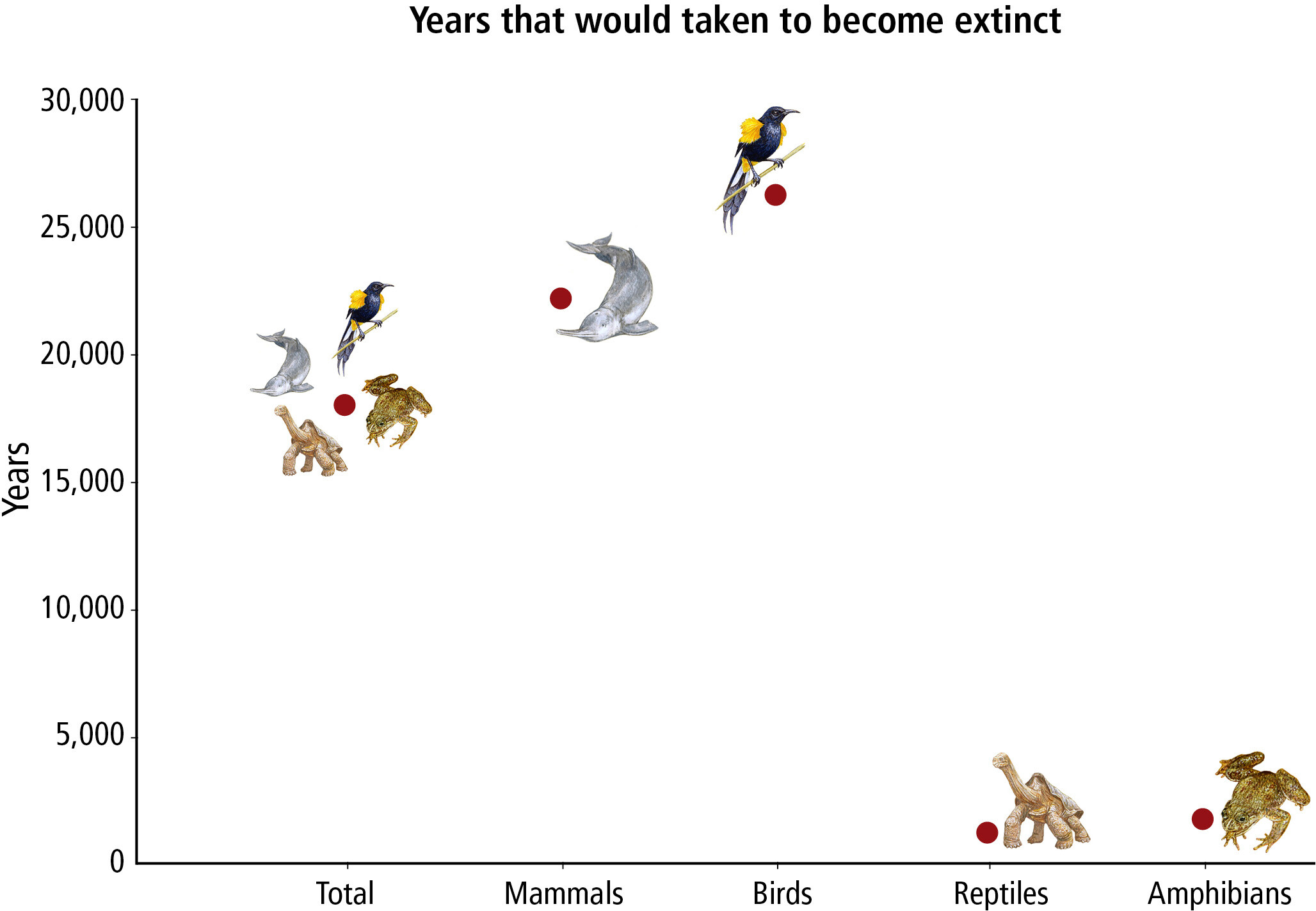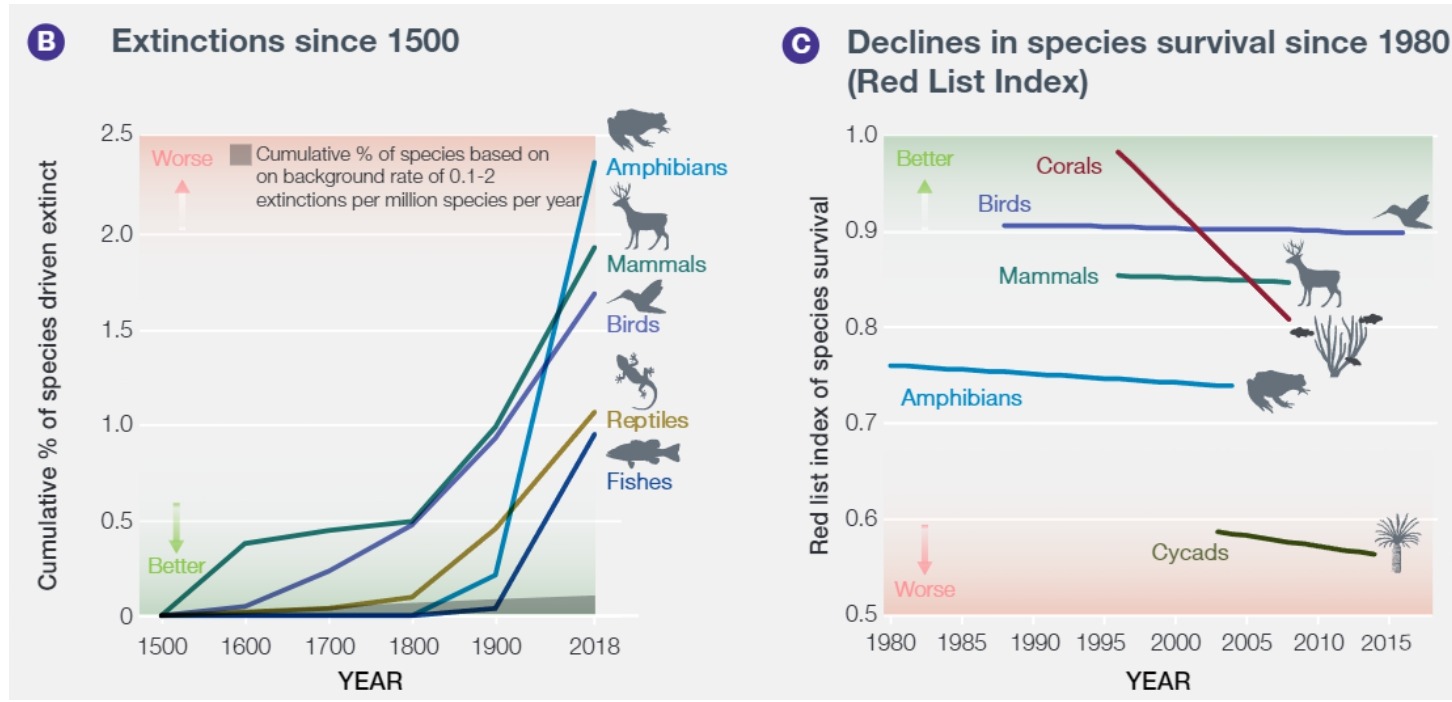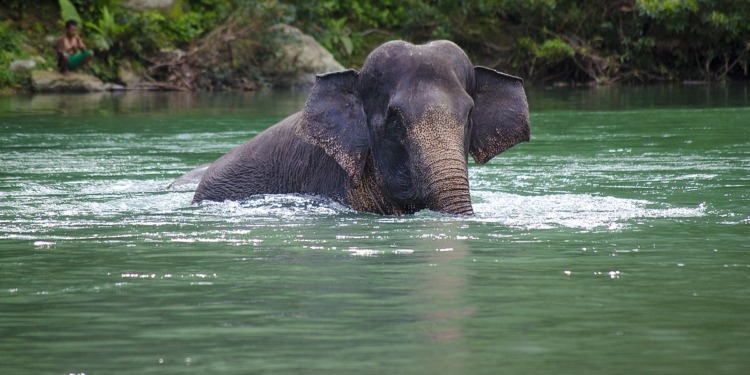“We are in the sixth mass extinction event. Unlike the previous five, this one is caused by the overgrowth of a single species, Homo sapiens.”
These are the opening words of a new study, published in the journal Proceedings of the National Academy of Sciences, which shows that, “beyond any doubt,” human activity is driving wildlife loss much faster than previously thought and that this pace is rapidly accelerating.
“The current generic extinction rates are 35 times higher than expected background rates prevailing in the last million years under the absence of human impacts,” the researchers found.
Since 1500 AD, 73 genera (groups of species) — including mammals, birds, reptiles and amphibians — have gone extinct. This represents a huge loss for several branches of the tree of life, which, as the study authors explain, is “changing the trajectory of evolution globally and destroying the conditions that make human life possible.”
Among the human activities intensifying extinction rates are habitat destruction, illegal trade, and climate disruption.
If humans had not been part of the picture, the extinction of the 73 vertebrate genera over the past 500 years would have taken around 18,000 years, with group variations. Without humans, the researchers estimate that the number of vertebrate genera going extinct since 1,500 would have stood at only two.
Mammals and birds, the research shows, would have taken even longer to go extinct — between 23,000 and 26,000 years, respectively.

Suppose human activity continues to affect animal habitats at the current rate. In that case, the extinction rate at the end of the century will be “354 times larger for all land vertebrates when compared to background extinction rates,” with a variation ranging between 86 times for reptiles and 511 times for mammals.
Considering the projected loss of species from 1800 to 2100, it would have taken 106,000 years for all vertebrates and up to 153,000 years for mammals to go extinct if humans had not been in the picture.
The Consequences of Wildlife Loss on Humans
The authors of the study — Prof Gerardo Ceballos and Prof Paul Ehrlich — warned that this loss is a threat to human civilisation: Losing widespread genera impacts the functions of entire ecosystems.
“This mass extinction is transforming the whole biosphere, possibly into a state in which it may be impossible for our current civilisation to persist,” the study found. “Immediate political, economic and social efforts of an unprecedented scale are essential if we are to prevent these extinctions and their societal impacts.”
Related articles: Over Two-Thirds of Wildlife Lost in Less Than a Lifetime | UN Summit on Biodiversity: WWF Calls for More Action to Put Nature on Path to Recovery | EU Unveils Law to Halt Biodiversity Loss and Improve Food Systems | Captivity for Conservation: Can Zoos Be Ethical?
The study’s leader, Prof Ceballos, told the Guardian that “[b]y losing all these genera, we are losing the foundations of the planet to have life in general and human life in particular. If you have a wall made of bricks, if you lose some, it won’t collapse but it won’t be as strong. If you lose many bricks, eventually it will collapse.”
Losing the tree of life has also been linked to an increased risk of pandemic diseases — such as Ebola, Mers, Sars, and Covid — for all macroorganisms, including humans.
Although there have indeed been five other mass extinctions, this one is the first one where a species — humans — has the power to decrease the extinction rate consciously. Unfortunately, the same species is also the one responsible for the increase in the first place.
Calls for the protection of biodiversity have been widespread. In 2019, the UN published a global assessment report on biodiversity and ecosystem services, which highlighted that “around 1 million species already face extinction, many within decades, unless action is taken to reduce the intensity of drivers of biodiversity loss.”

Prof Ceballos is confident that “[a]s dramatic as the results are, what is important to mention is that we still have time. The window of opportunity is closing rapidly. There is hope but we need to act quickly.”
Immediate action is needed to prevent the huge losses of other genera. As the study highlights, “[w]hat happens in the next two decades will very likely define the future of biodiversity and H. sapiens.”
Editor’s Note: The opinions expressed here by the authors are their own, not those of Impakter.com — In the Featured Photo: The critically endangered Sumatran elephant bathing in the Tangkahan conservation area, Gunung Leuser National Park, Langkat, 2017. Featured Photo Credit: kusuma wijaya.










